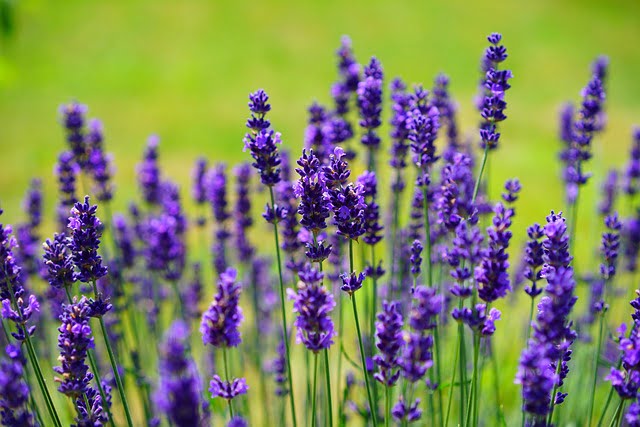Five Natural Herbal Remedies To Help You Sleep: An In-Depth Guide
Learn about the five natural herbal remedies to help you sleep. Discover the benefits of chamomile, valerian root, and lavender to treat insomnia without medication and enhance the quality of sleep.
Are sleepless nights keeping you awake, leaving you restless and drained? You are not alone; millions of people worldwide fight sleeps disorders. Before prescription sleep aids are prescribed, why not explore natural solutions? In this guide, we will walk you through various herbal remedies that can improve your quality of sleep.

Understanding Sleep Disruptions
Before initiating treatment, it is important to understand why sleep is very essential and what might be affecting it.
Why Quality Sleep is Crucial?
Sleep is more than just rest; it is a restorative process for both the mind and body. Without enough sleep, you might experience the following:
- Reduced mental clarity
- Weakened immunity
- Higher risks of chronic health problems
- Mood swings and increased irritability
Common Causes of Sleep Disorders
Several factors can contribute to trouble sleeping, such as
- Stress and anxiety
- Poor sleep habits
- Irregular bedtime schedules
- Consuming caffeine or alcohol
- Certain medications
With a better understanding of what may be disrupting your sleep, we can explore some natural herbs that can help you rest easily.
Herbal Remedies that Support Better Sleep
- Chamomile: Nature’s Soothing Agent
Chamomile, a popular herbal sleep aid, has been used for centuries because of its calming properties.
How it works:
Chamomile includes apigenin, which interacts with brain receptors to promote relaxation and sleep.
How to use:
- Brew a warm cup of chamomile tea 30 min before bed.
- Chamomile supplements are available in capsule form if tea is not your preference.

- Valerian Root: Sleep-Boosting Herb
Valerian root is a herbal remedy known to improve sleep quality and reduce the time it takes to fall asleep.
How it works:
Studies shows that Valerian root increases levels of GABA, a neurotransmitter responsible for relaxation, in the brain.
How to use it:
- Take valerian root supplements 30 min to 2 h before going to bed.
- Start with a lower dose to determine how your body responds, then increase as necessary.

- Lavender: Calming Fragrance
Lavender is well known for its relaxing aroma, which improves sleep, especially in individuals with mild insomnia.
How it works:
Lavender scent helps deep sleep by relaxing the heart rate and calming the muscles.
How to use it:
- Use a diffuser with lavender essential oil in your room.
- Add a few drops of lavender oil to your pillow or enjoy a cup of lavender tea at bedtime.

- Passion flower: Easing Anxiety to Improve Sleep
Passion flower is a natural remedy traditionally used to reduce anxiety and promote restful sleep.
How it works:
Like valerian, passionflower raises GABA levels, thereby reducing brain activity and promoting calmness.
How to use it:
- Enjoy a cup of passionflower tea at bedtime.
- Passionflower is also available in capsule form.

- Lemon Balm: The Gentle Relaxant
Lemon balm, a member of the mint family, is used to reduce stress and improve sleep.
How it works:
Lemon balm has mild sedative effects that can help calm nerves and reduce restlessness.
How to use it:
- Brew lemon balm tea before bed.
- Lemon balm supplements are available for those who prefer capsules.

Combining Herbs to Improve Sleep
For some individuals, combining different herbal remedies can produce even better results. Popular combinations include the following:
- A chamomile and lavender tea mixture
- Valerian root combined with passionflower as a supplement
- Lemon balm and chamomile capsules
If you decide to mix herbs, start with small doses and consult a health care provider if you are on other medications or have health concerns.
Creating an Ideal Sleep Environment
Beyond herbal remedies, setting up an environment for better sleep is also key. Consider these tips to enhance your rest:
- Keep your room cool and dark.
- Choose comfortable bedding.
- Reduce screen time before bed.
- Stick to a consistent sleep schedule.
- Practice deep breathing or meditation to relax.
Precautions and Possible Side Effects
Although herbal remedies are generally safe, it’s important to be cautious:
- Some herbs may cause allergic reactions in certain people.
- Herbal supplements may interact with the drugs you are taking.
- If you are pregnant or breastfeeding, consult a doctor before using any herbal sleep aids.
- Avoid driving or operating machinery when you consume sleep-inducing herbs.
Always start with the lowest recommended dose, and if you experience any negative effects, discontinue use and seek medical attention.
Conclusion: Natural Solutions for Better Sleep
Natural herbal remedies like chamomile, valerian root, lavender, passionflower, and lemon balm, can effectively combat insomnia and improve quality of sleep. By incorporating these herbs into your nighttime routine, you may find yourself sleeping more soundly without the need for prescription medications.
Quality sleep is essential for maintaining overall health. Try these natural remedies and find the best combination for you. Sleep habits vary from person to person, so be patient as you explore different options.
Have you tried herbal remedies for sleep? Please share your experiences with us! Let us continue the conversation about natural sleep solutions and help each other achieve more peaceful nights.
Sweet dreams!
FAQ: Natural herbal Remedies for sleep
- What natural herb is best for sleep?
Valerian root is known by many as one of the best natural herbs that people can use regarding sleep. The natural herb has been used for many years for relaxation and better sleep. Other effective herbs include the following:
- Chamomile
- Lavender
- Passionflower
- Lemon balm
We are all individuals and may react in various ways to these herbs, which is why it is important to know what is effective for you.
- What natural sleep remedy is strongest?
While “strongest” can vary from person to person, some of the most potent natural sleep remedies include: While “strongest” can vary from person to person, some of the most potent natural sleep remedies include:
- Melatonin supplements
- Valerian root
- Magnesium
- CBD oil (where legal)
This should be performed before adding any new supplements to your normal diet, especially if you have other illnesses or are taking medication.
- What natural remedy is best for insomnia?
The best natural remedy for insomnia often involves a combination of approaches: The best natural remedy for insomnia often involves a combination of approaches:
- Creating a routine regarding when one needs to sleep and wake up
- Establishing a schedule for preparing children for bed
- Some ways to use therapies include taking herbs such as valerian root and using chamomile tea.
- Specific exercise such as deep breathing or other forms of relaxation those are effective for stress management.
- Regarding the quality of your sleeping environment, it must ideally be dark and quiet, and the room temperature must be cool.
Some individuals opt for non-pharmacologic treatment of insomnia, which is called cognitive behavioral therapy for insomnia (CBT-I).
- How can one naturally improve sleep?
Most of the time, people wonder how they can enhance their sleep without having to depend on medication.
To improve sleep naturally, try the following strategies:
- Ensure to maintain a proper sleep-wake cycle even during the days of the week when one does not go to work.
- Reduce the intake of caffeine, alcohol, and heavy meals, as these can cause some harm to the body, especially at night.
- Exercise often, but do so in the early morning or midday, not in the evenings
- Reduce the time to use a screen, such as television, computer, or phone, before going to bed
- Recommendable night practices include performing fun activities such as reading books or listening to quiet music before going to bed.
- Ensure that your bedroom environment is as close to no light, no noise, and appropriate temperature as possible.
- One must try natural ingredients such as magnesium and herbal teas.
- Engage in stress-management activities such as taking a walk or writing something meaningful.
As usual, each case can be different, and one strategy, speech, task, or activity, may be better for one teacher than another. Natural remedies and lifestyle changes may require trial and error before one identifies the best combination to adopt.

